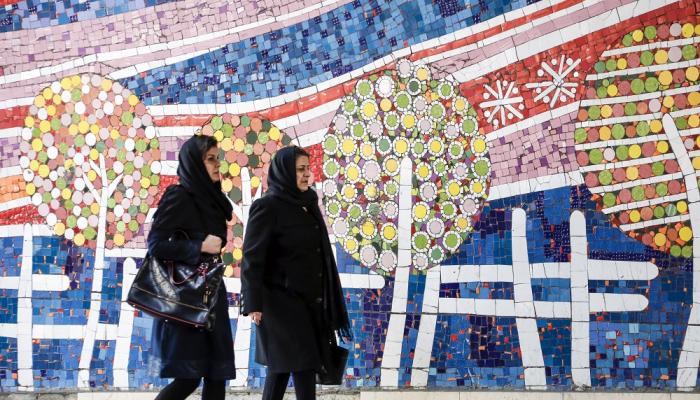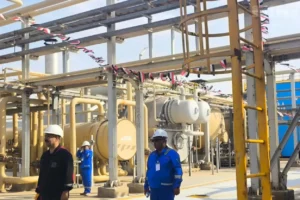
Shafaq News
In Iraq, the idea of building a life together is no longer
straightforward. For many, the journey toward marriage has become a careful
negotiation between hope, hesitation, and the realities of the world around
them.
Love exists, but it now must contend with unseen pressures and silent
questions — about timing, choices, and the kind of life worth committing to.
Love’s High Cost
For many young Iraqis, marriage has shifted from a celebration of love
to a test of financial readiness. Youth unemployment stands at 26%, and
inflation reached 8.3% in 2024. In Baghdad, rents have climbed from IQD 400,000
($263) in 2020 to over IQD 700,000 ($460) in 2024 — an increase of more than
IQD 300,000 ($197).
Meanwhile, the price of a 21-carat gold mithqal — a traditional part of
dowries — has nearly doubled, rising from IQD 275,000 ($181) in 2019 to IQD
480,000 ($316) in 2025.
“These numbers create real pressure on young couples,” social researcher
Fatima al-Sarraj explained to Shafaq News, highlighting the economic hurdles
that shape marital decisions. “Love becomes another financial burden when you
are expected to shoulder loans, dowries, and lavish ceremonies before you even
start a life together.”
Al-Sarraj observed that the economic strain is compounded by a cultural
shift. Iraq’s youth are increasingly exposed to global norms through social
media, reshaping expectations around relationships, gender roles, and personal
autonomy. Yet traditional pressures remain strong. “Many young people feel they
must meet social expectations even when it risks financial ruin,” she added.
The tension is evident in the experience of Ali, a 29-year-old from
Baghdad, who described marriage today as “more of a business deal than a
partnership.” He pointed to friends still repaying wedding loans years after
their ceremonies. His father, while frustrated by the delay, acknowledged that
he can’t blame him, stressing that ‘’society judges, but doesn’t help.”
A generational recalibration is reflected in the data. A 2024 Al-Nahrain
University survey found that 63% of Iraqis aged 20–35 no longer consider
marriage a life priority, with 54% citing economic instability as the main
obstacle. Nearly half of respondents believe love alone cannot sustain a
marriage, and 37% of young women said they would remain unmarried if it
conflicted with their careers.
Religious voices offer another perspective. Islamic scholar Sheikh Hazem
al-Atwani argued that many pressures stem from a drift away from divine
guidance. He emphasized that husbands must provide and respect, and wives must
uphold their roles — not as constraints, but as protections for marital stability.
Highlighting the potential impact of modern civil laws on family
structures, Al-Atwani suggested that a return to foundational rules could
restore balance.
Despite differing lenses, both al-Sarraj and Al-Atwani converge on one
point: Iraq’s youth are navigating a difficult crossroads. “The question isn’t
whether youth want to marry,” al-Sarraj emphasized, “but whether the kind of
marriage they can afford still feels worth pursuing.”
Read more: Visit the jewelry shop? Iraq’s soaring gold prices put weddings on hold
Divorce Decoded
If many young Iraqis are delaying marriage, an increasing number of
those who do marry are struggling to keep their unions intact. Divorce, once a
social taboo, is now becoming a defining reality — and its emotional and social
toll is reshaping families across Iraq.
Arwa, a woman in her early thirties, recalled how her marriage of five
years gradually deteriorated under the weight of disrespect and silence. “I
tried to fix things,” she whispered. “But he never listened, and I stopped
feeling like myself.”
When she finally requested a divorce, she expected freedom to bring
peace. Instead, judgment followed. “My family told me a woman must endure no
matter what. I went back to my parents’ house, but I didn’t feel safe. Every
day I hear words that break my heart.”
Speaking to Shafaq News, psychologist Dr. Lina al-Hassan, who works with
divorced women at Baghdad’s Ibn Rushd Mental Health Center, observed that
Arwa’s story reflects a quiet crisis spreading through Iraq’s homes. “For many
women, divorce is both an escape and a punishment,” she explained, emphasizing
that leaving one form of suffering often leads to another — isolation, blame,
and economic hardship.
A 2024 study by the University of Baghdad’s Department of Social
Research found that over 60% of divorced women fall into financial difficulty
within a year of separation, particularly those with children. “Divorce rarely
ends with two signatures,” al-Hassan noted. “It lingers in the lives of
children who grow up anxious, withdrawn, or distrustful of family life.”
Read more: Temporary marriage in Iraq: economic pressures, legal controversies, and societal dynamics
Risk, Not Comfort
That fear is influencing a generation’s decisions. Areej, a 25-year-old
student, reflects on what she has seen. “Marriage becomes a cage instead of
comfort,” she murmured. “I don’t want to live my life afraid of mistakes or
gossip.”
Sociologist Muna al-Saadi believes that sentiment signals a broader
shift among Iraq’s youth. “Young people no longer see marriage as a guarantee
of stability,” she observed. “They see it as a risk — emotional, financial, and
social.”
Official figures underscore the trend. The Supreme Judicial Council
recorded 171,846 marriages and 34,522 divorces in the first half of 2025 —
roughly one separation for every five unions. The number of divorces has been
climbing steadily over the years: 34,000 in 2010, 45,000 in 2015, 73,000 in
2020, and more than 80,000 in 2024.
Al-Saadi interprets these numbers as a reflection of deeper social
change. “Marriage has become fragile because people are demanding more from it
— respect, understanding, equality.”
Those expectations are evident in Ziyan’s experience. Divorced for two
years, she described her marriage as “a life of pressure and expectations.”
Ending it, though difficult, marked a turning point.
“After the divorce, I started learning how to love myself,” she
explained. “I work, I decide, and I don’t care what people say anymore.”
Framing women like Ziyan as part of a quiet social awakening, Al-Saadi
highlighted that women no longer view endurance as a virtue. “They demand
dignity — and the freedom to choose happiness.”
She also cautioned that Iraq’s limited institutional support exacerbated
these struggles. The country has fewer than 40 family counseling centers, many
understaffed, and women constitute only 15–18% of family case lawyers. “Without
support systems, couples reach the courtroom instead of reconciliation,” al-Saadi
noted.
For Arwa and Ziyan, the emotional scar is still healing. Each has found
a path to rebuild — through work, reflection, or simply the belief that life
must move forward. “Divorce hurt me, but it taught me,” Arwa reflected softly.
“Maybe I’ll marry again — when I’m truly ready.”
Their stories capture more than personal struggle. They reflect a
country in transition — where love now contends with doubt, where tradition
clashes with independence, and where a generation is slowly rewriting what it
means to start over.
Written and edited by Shafaq News staff.
Read more: Iraq’s Controversial Personal Status Law: The future of girlsat a cross roads





